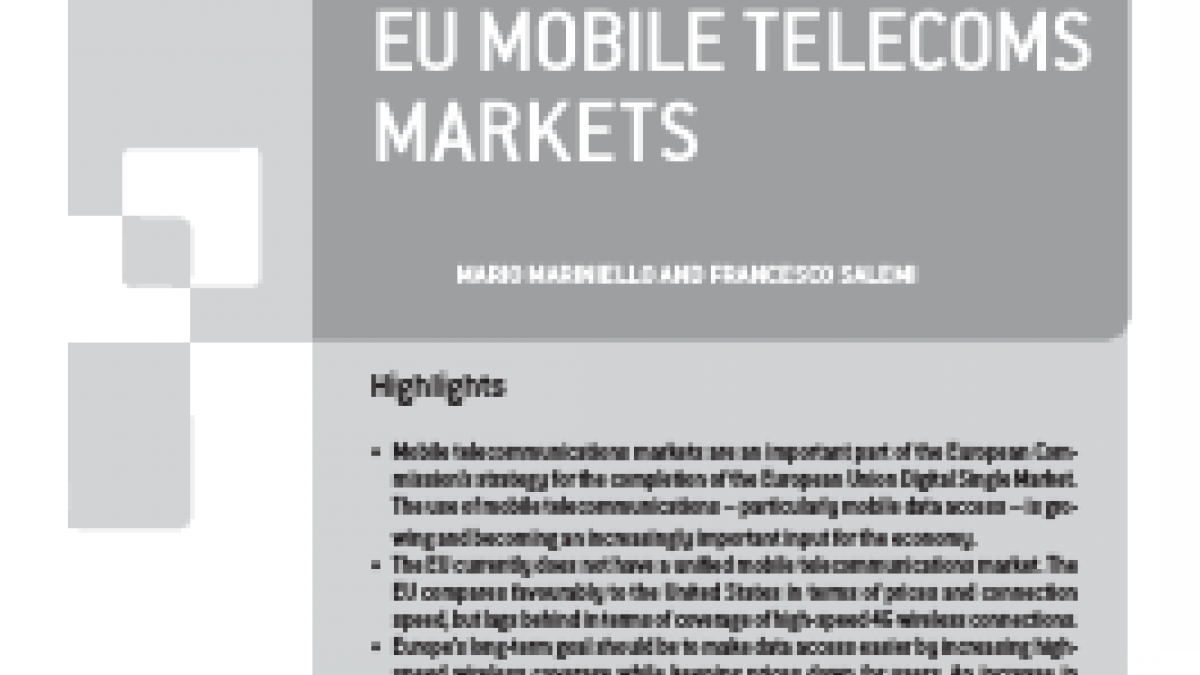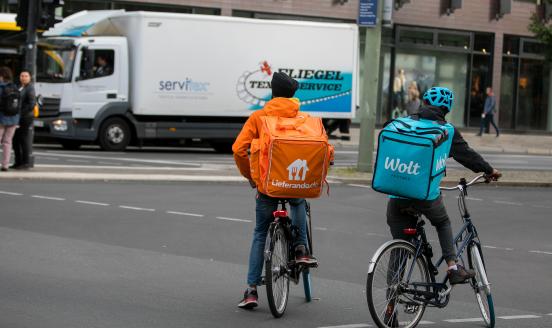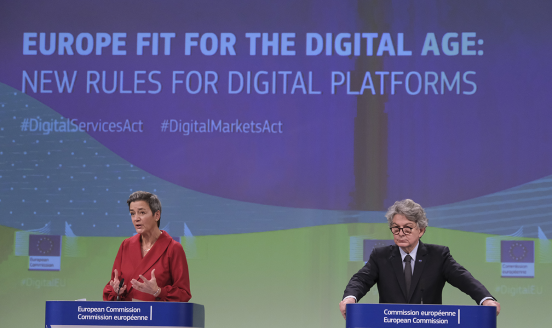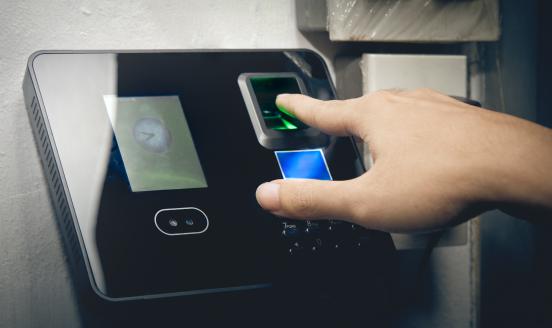Addressing fragmentation in EU mobile telecom markets
This Policy Contribution looks at EU mobile telecoms markets and analyses potential concrete measures to improve end-users’ access conditions and addr

Highlights
- Mobile telecommunications markets are an important part of the European Commission’s strategy for the completion of the European Union Digital Single. The use of mobile telecommunications – particularly mobile data access – is growing and becoming an increasingly important input for the economy.
- The EU currently does not have a unified mobile telecommunications market. The EU compares favourably to the United States in terms of prices and connection speed, but lags behind in terms of coverage of high-speed 4G wireless connections.
-Europe’s long-term goal should be to make data access easier by increasing highspeed wireless coverage while keeping prices down for users. An increase in cross-border competition could help to achieve that goal.
- The Commission has two important levers to help stimulate cross-border supply: (a) ensuring competition in intra-country mobile markets in order to provide an incentive for operators to expand into other jurisdictions, and (b) reducing mobile operators’ costs of expansion into multiple EU countries. The further development of policies on international roaming and radio spectrum management will be central to this effort.



